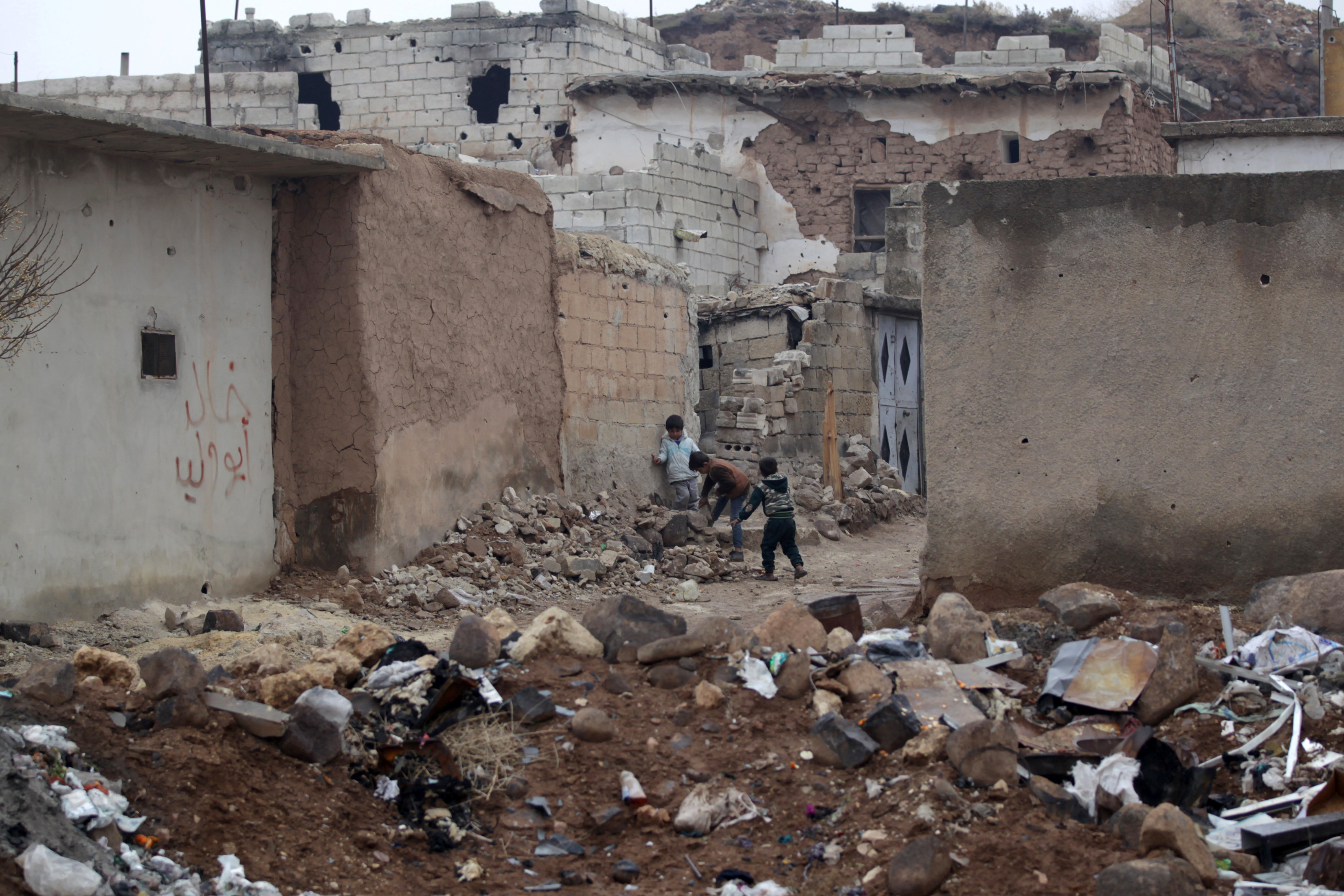
By Denis Pinchuk and Tulay Karadeniz
MOSCOW/ANKARA (Reuters) – Russian President Vladimir Putin announced a ceasefire between Syrian opposition groups and the Syrian government starting at midnight on Thursday.
The Kremlin statement came after Moscow, Iran and Turkey said they were ready to broker a peace deal in the nearly six-year-old Syrian war.
The Syrian army announced a nationwide halt to fighting but said Islamic State and ex-Nusra Front militants and all groups linked to them would be excluded from the deal. It did not say which unnamed groups would be excluded.
Several rebel officials told Reuters they had agreed to the ceasefire plan, but there was uncertainty over which groups were included in the deal, which was due to come into effect at 2200 GMT on Thursday.
Talks on a ceasefire picked up momentum after Russia, Iran and Turkey last week said they were ready to back a deal and adopted a declaration setting out principles that any agreement should adhere to.
Putin said Syrian opposition groups and the Syrian government had signed a number of documents including the ceasefire that would take effect at midnight on the night of Dec 29-30.
“The agreements reached are, of course, fragile, need a special attention and involvement… But after all, this is a notable result of our joint work, efforts by the defence and foreign ministries, our partners in the regions,” Putin said.
He also said that Russia had agreed to reduce its military deployment in Syria.
WASHINGTON SIDELINED
The United States has been sidelined in recent negotiations and is not due to attend the next round of peace talks in Astana, capital of Kazakhstan, a key Russian ally.
Its exclusion reflects growing frustration from both Turkey and Russia over Washington’s policy on Syria, officials have said.
However, Russian Foreign Minister Sergei Lavrov said the United States could join the peace process once President-elect Donald Trump takes office.
Talks towards a ceasefire to end the conflict reflect the complexity of Syria’s civil war, with an array of groups and foreign interests involved on all sides.
The deal by Turkey and Russia to act as guarantors in the war comes despite their support of different sides in the civil war. Ankara has insisted on the departure of Syrian President Bashar al-Assad, who is backed by Russia.
Likewise, demands that troops from Lebanese Shi’ite Hezbollah leave Syria may not sit well with Iran, another major supporter of Assad. Hezbollah troops have been fighting alongside Syrian government forces against rebels opposed to Assad.
“All foreign fighters need to leave Syria. Hezbollah needs to return to Lebanon,” Turkish foreign minister Mevlut Cavusoglu said.
Sources have told Reuters that, under an outline deal between the three countries, Syria could be divided into informal zones of regional power and Assad would remain president for at least a few years.
HURDLES
There are also more immediate hurdles. Syrian rebel groups were due to hold talks with Turkish officials in Ankara on Thursday.
A senior rebel official told Reuters this week the groups were discussing with Turkey the ceasefire proposal being negotiated with Russia.
They had rejected Moscow’s demand to exclude a rebel stronghold near the capital from any deal, said Munir al Sayal, the head of the political wing of Ahrar al Sham, whose group is involved in talks with Turkey.

Children play near rubble of damaged buildings in al-Rai town, northern Aleppo countryside, Syria December 25, 2016. REUTERS/Khalil Ashawi
Ankara supports the Free Syrian Army, a loose alliance of rebel groups, some of which it is backing in operations in northern Syria designed to sweep Islamic State and Syrian Kurdish fighters from its southern border.
The United States is backing the Syrian Kurdish YPG in the fight against Islamic State in Syria, a move that has infuriated Turkey, which sees the YPG as an extension of the militant Kurdistan Workers Party (PKK). Ankara fears that advances by Kurdish fighters in Syria could inflame militants at home.
Turkish President Tayyip Erdogan has accused the United States of supporting terrorism in Syria, including Islamic State, comments that Washington has dismissed as “ludicrous”.
“We, as Turkey, have been calling to Western nations for some time to not distinguish between terrorist organizations and to be principled and consistent in their stance,” Erdogan said in a speech on Thursday.
“Some countries, namely the United States, have come up with some excuses on their own and overtly supported the organizations that massacre innocent people in our region. When we voice these, these gentlemen are bothered by it.”
(Additional reporting by Suleiman Al-Khalidi in Amman and Humeyra Pamuk and Daren Butler in Istanbul; Writing by David Dolan and Anna Willard; editing by Giles Elgood)



